The vehicles, set to begin testing in 2020, will use deep learning to learn motorists’ preferences, emotions, and habits.


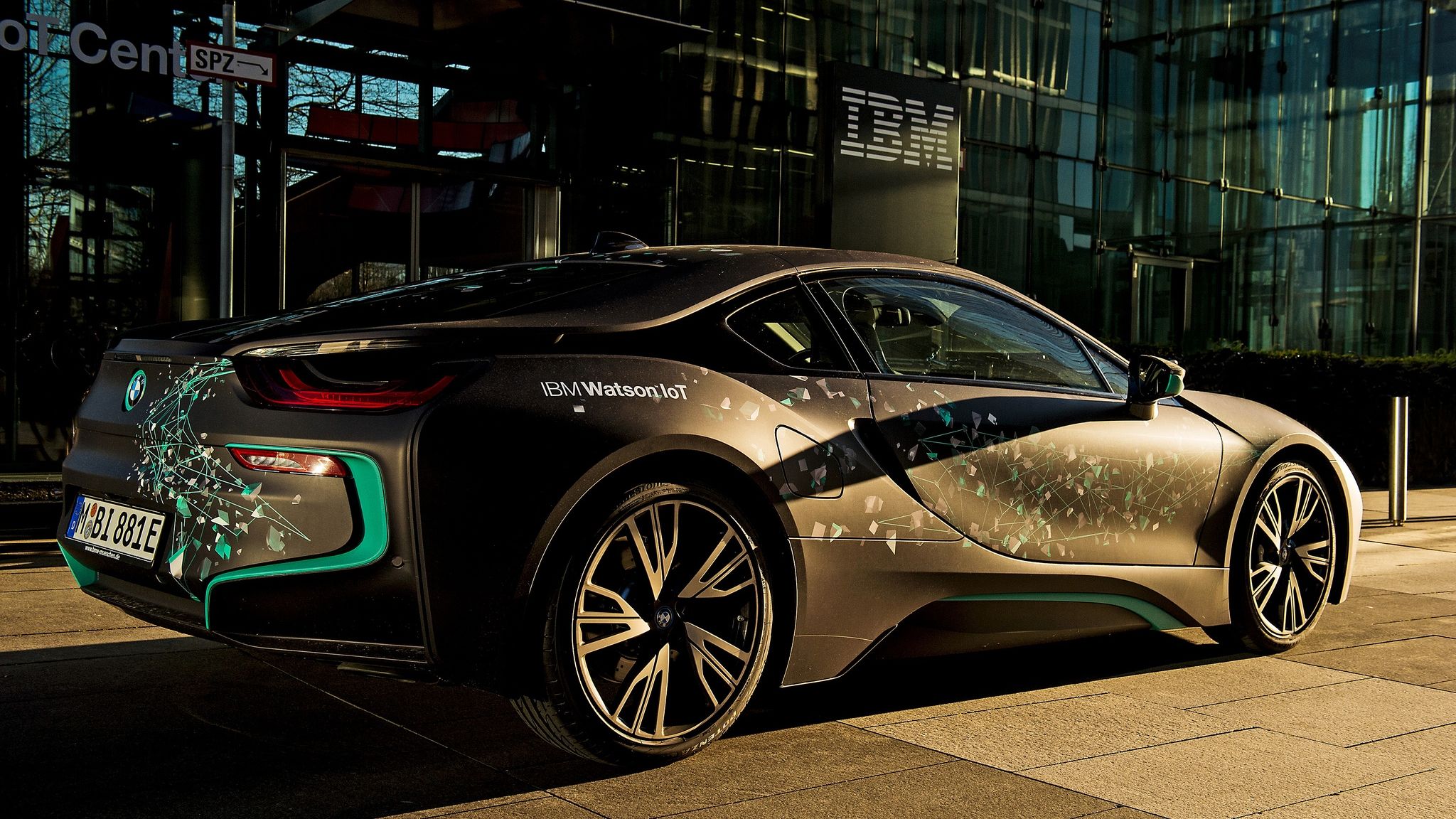
The BMW i8 is already one of the most futuristic-looking cars on the road, but it’s about to get more innovative inside, too. BMW has just announced a brand-new tech collaboration with IBM, which will see the tech giant’s Watson AI tested in four of BMW’s hybrid sports cars. The project will see BMW engineers and IBM researchers work together in Germany, as both IBM and BMW have research facilities in Munich.
The project aims to make driving assistance and information more personalised and intuitive – and Watson looks to be the perfect candidate for the job. IBM’s powerful AI should make the car’s existing systems much easier to use, and BMW has already given a few examples of how it could work. The i8’s manual will be by Watson, so drivers will be able to enquire about vehicle information in natural language, rather than select phrases. In the same way, BMW and IBM want the Watson-fitted i8 to provide updates on everything from fuel levels to traffic updates in a simple, easy way.
However, Watson’s machine learning will have another benefit, too: personalisation. By gradually learning the routes, language and needs of a driver, Watson will be able to deliver the right amount of information almost before it’s needed.
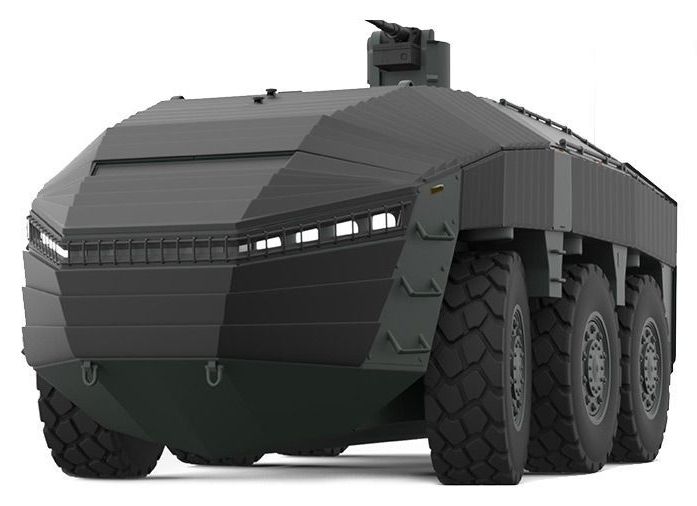
https://youtube.com/watch?v=QiyL9Dq-1IU
There are a list of thousands of vehicles that have been tweaked for speed, riveting performance and exhilarating power that’s built and tested to be taken to extremes.
Due to the increasing number of millionaires and their treasured toys, this was definitely a wake up call for the police forces to step their game up and to put a counter measure leverage system into place by upgrading their state vehicles so that they aren’t easily intimidated or outrun by the reckless speedsters on the move. We are to take a look at 10 of the best Police Cars in the world.
Nissan Skyline GTR Good ol’ Japan can be give an award for their ability to swiftly develop and adapt to ever-changing times and situations and we can gladly take out hats off for the National Japanese Law Enforcement We immediately see a lot of scope when it comes to a masculine defining car such as the Nissan skyline which is commonly known for its racing abilities as made famous in “The Fast And Furious” Movie as well.
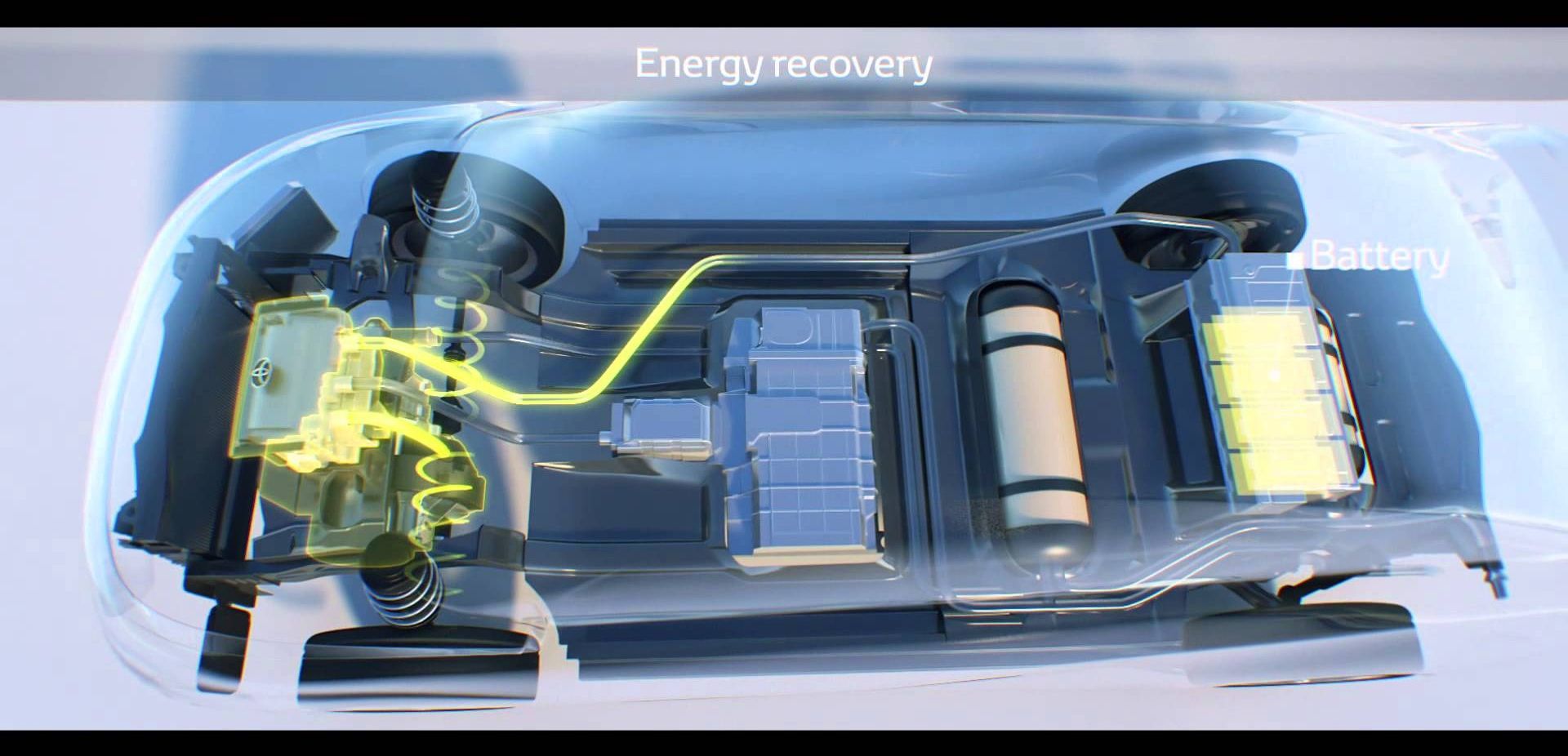
Japanese automaker Toyota is serious about perfecting hydrogen fuel cell technology to power its vehicles, and it’s scheduled an initial feasibility study operations for its zero-emissions heavy-duty truck a little over a week from today. A concept version of a truck running Toyota’s specialized hydrogen fuel cell system designed for heavy-hauling use will be moving goods from select terminals at the Port of LA and Long Beach to nearby warehouses and rail yards beginning on October 23.
“If you see a big-rig driving around the Ports of Los Angeles and Long Beach that seems oddly quiet and quick, do not be alarmed! It’s just the future,” Toyota wrote in a press release. The company expects the daily runs to cover some 322 kilometers (200 miles) to test the fuel cell system’s duty-cycle capabilities. Afterwards, longer trips could be introduced.
Image credit: Toyota.

White-collar automation has become a common buzzword in debates about the growing power of computers, as software shows potential to take over some work of accountants and lawyers. Artificial-intelligence researchers at Google are trying to automate the tasks of highly paid workers more likely to wear a hoodie than a coat and tie—themselves.
In a project called AutoML, Google’s researchers have taught machine-learning software to build machine-learning software. In some instances, what it comes up with is more powerful and efficient than the best systems the researchers themselves can design. Google says the system recently scored a record 82 percent at categorizing images by their content. On the harder task of marking the location of multiple objects in an image, an important task for augmented reality and autonomous robots, the auto-generated system scored 43 percent. The best human-built system scored 39 percent.
Such results are significant because the expertise needed to build cutting-edge AI systems is in scarce—even at Google. “Today these are handcrafted by machine learning scientists and literally only a few thousands of scientists around the world can do this,” said Google CEO Sundar Pichai last week, briefly namechecking AutoML at a launch event for new smartphones and other gadgets. “We want to enable hundreds of thousands of developers to be able to do it.”
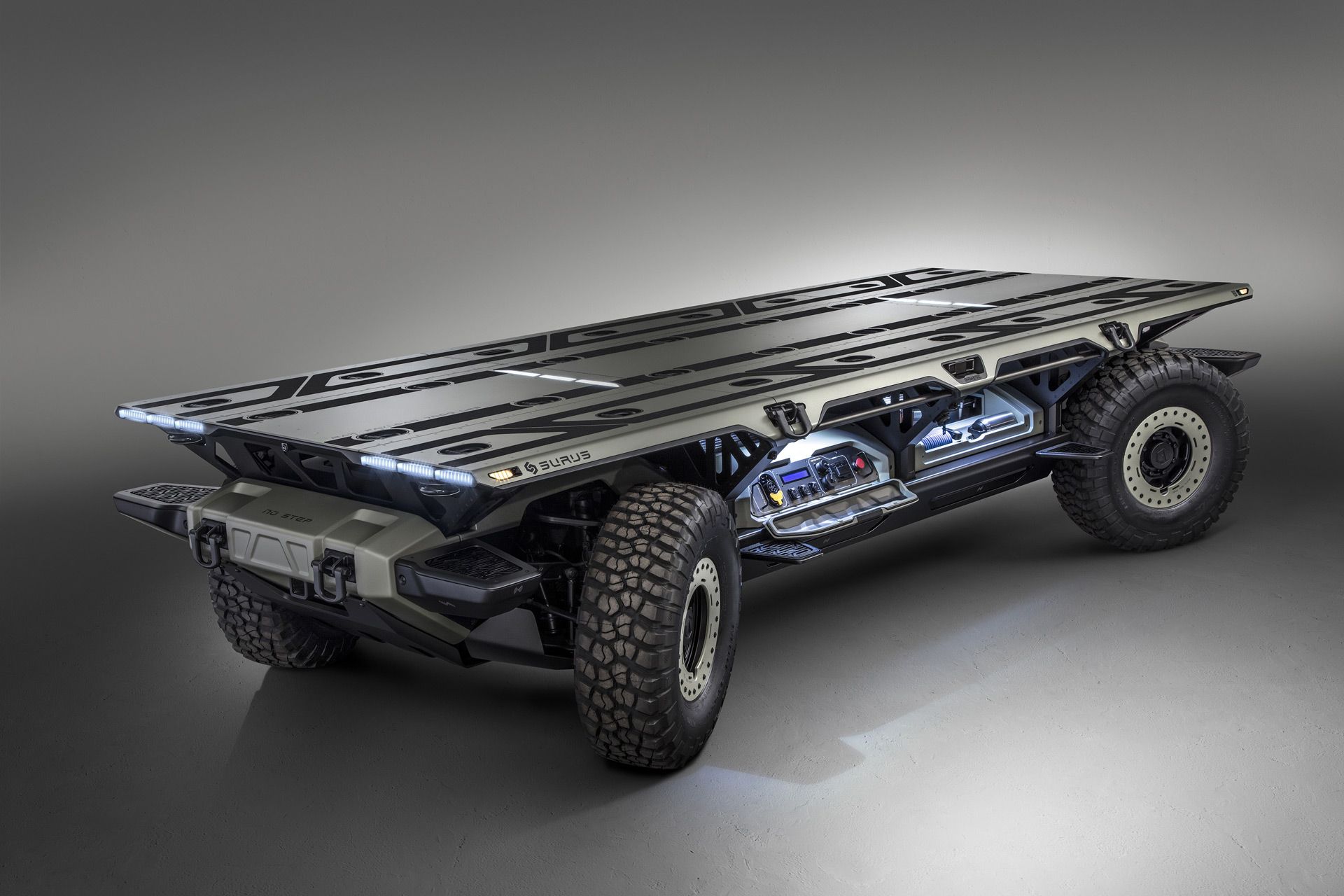
While some automakers look to electrify conventional trucks, General Motors has taken a much more radical approach in its development of next-generation commercial vehicles.
Meet the Silent Utility Rover Universal Superstructure, or SURUS for short.
Unveiled on Friday ahead of the fall meeting of the Association of the United States Army, where it will be presented on Monday, the SURUS is essentially a modular platform designed for heavy-duty trucks that will enable near-silent running, zero harmful emissions, and autonomous operation.
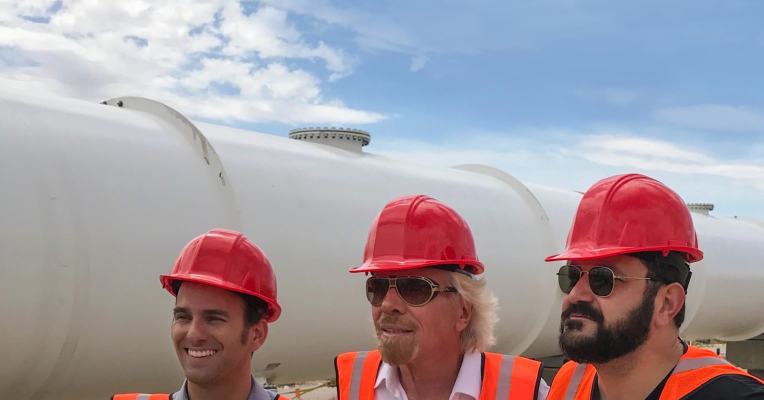
Hyperloop One has received a significant investment in Hyperloop One — the official figure hasn’t been revealed, but it’s enough that the Hyperloop tech startup, which aims to create networks of high-speed transportation tunnels to various locales across the globe, has changed its name. Virgin Hyperloop One is the entity’s official moniker going forward, which is quite a mouthful.
Virgin Hyperloop One’s rebrand will mean it gains from association with Virgin Group founder Richard Branson, whose high-tech transportation exploits include Virgin Galactic and other space-based ventures. The goal of the company under the rebrand remains the same, and it’ll continue to explore the best places and partners for deploying its high-speed transportation tech, which will zoom pods at high speed down extremely low-pressure tubes to reduce trip times over land from hours to minutes.
The money isn’t the only connection between Hyperloop One and Virgin; the Hyperloop company’s president of engineering, Josh Giegel, is a former Virgin employee. Branson noted in a blog post that he also visited Hyperloop One earlier this summer to view its technology first-hand, at the Hyperloop One DevLoop test track site in Nevada, outside Las Vegas.
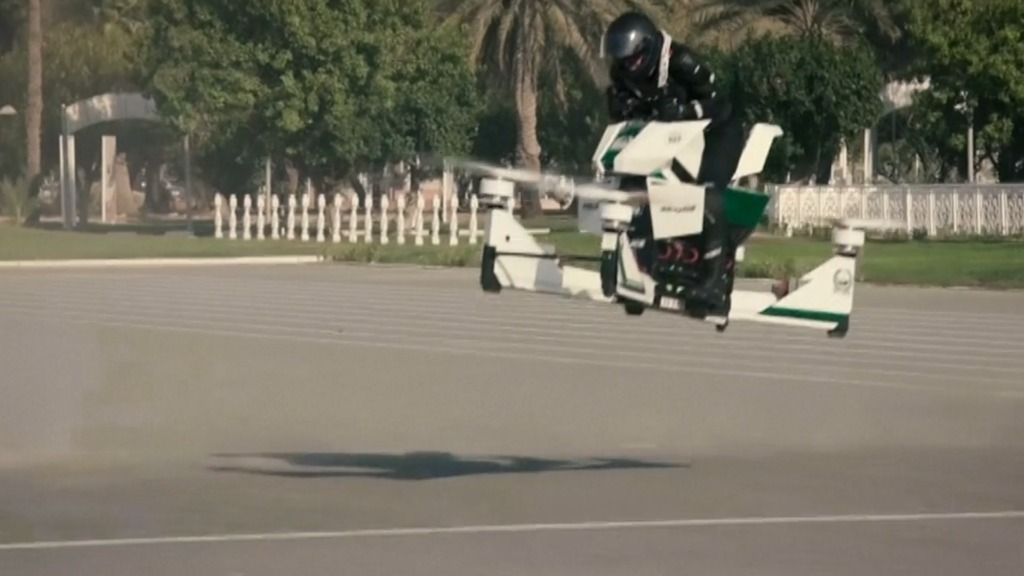
Dubai’s police department has added a flying motorcycle to its arsenal. Capable of flying with or without a pilot, the bike will be used to help rescue missions and monitor traffic. Due to safety concerns, the bike won’t fly higher than 20 feet. Dubai officials plan to start using the vehicle within the next two years.
The flying motorcycle is just the latest piece of absurd technology the Dubai government has introduced in the last year. The bike will join the ranks of Dubai’s jetpack firefighters, flying taxis, and robot police officers.
Dubai’s push for new government technology is part of their plan improve services ahead of their world fair, Expo 2020, which is expected to attract 25 million visitors to the city.
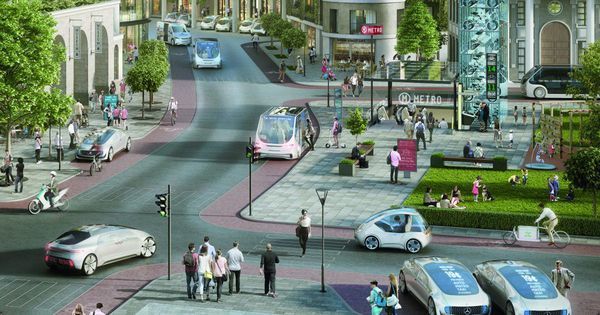
In a big step on the journey to our robot-laden future, California is moving to permit companies that are developing self-driving cars to test them in the state with no human safety driver at the wheel.
The state that’s home to the biggest concentration of autonomous vehicles is poised to take a big step to help advance the technology — and fend off efforts by other states to attract test programs.
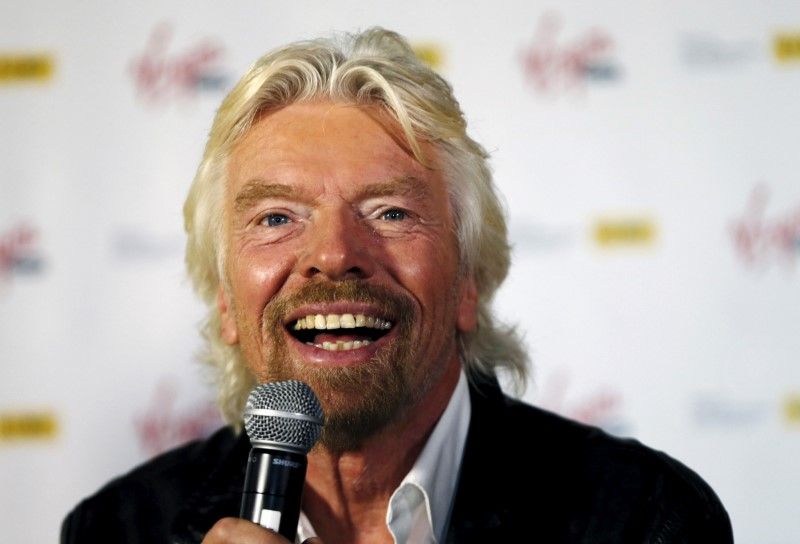
(Reuters) — British billionaire Richard Branson on Thursday placed another bet on the future with an investment in Hyperloop One, which is developing super high-speed transportation systems.
Hyperloop One said Branson’s Virgin Group would take the company global and rebrand itself as Virgin Hyperloop One in the near future.
Branson has joined the board of Hyperloop One, which will develop pods that will transport passenger and mixed-use cargo at speeds of 250 miles per hour (402 km per hour).